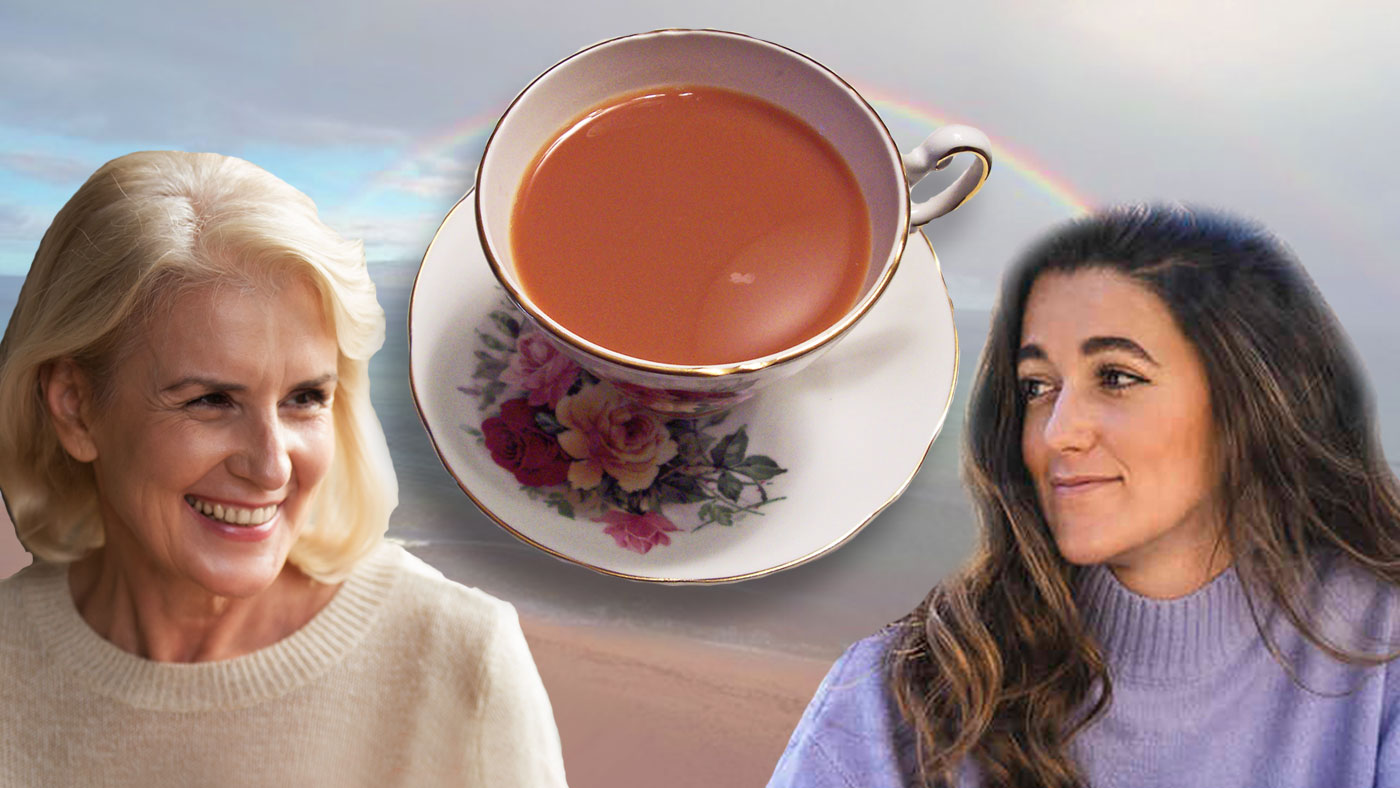A Cup of Tea
By A.C. Cargill
Nothing is more hospitable in the world, or so my travels have taught me, than a cup of tea with a congenial host. That little gesture, seen in British television and movies, is best experienced in real life. I had such an occasion – so comforting at a time when I needed it – that it has stayed in my memory for three decades now.
I was working in some nothing office in the British Consulate in London – assistant to an American liaison. My boss’ position sounded impressive but was more clerical – a lackey – passing messages between the British Consulate and the American Embassy. I was the lackey’s lackey, answering phones, opening mail, fetching coffee and occasionally picking up dry cleaning. It not only wasn’t my dream job, but it was stressful, trying to carry on the British tradition of being cheerful on the outside even though I felt so very alone as a foreigner.
I barely knew Judy, the wife of some British official. “Come by for tea,” she said one morning. She was in her husband’s office when I brought a message from my boss who got it from some low level assistant to the U.S. ambassador.
“Uh, sure,” I said, somewhat startled. “Love to. When?”
“Saturday around four o’clock,” she said. “Do you like sponge cake?”
“Sure, love sponge cake.”
“Good. It’s homemade. The store bought stuff should be called rock cakes.” She laughed and smiled.
Judy always seemed to be smiling whenever I saw her. I attended an embassy function recently, and she was there, smiling and laughing. A couple days later, I heard that her son had just undergone heart surgery. But that’s the British way – hide the pain so you don’t make people around you uncomfortable. The next time I saw her, I asked, “How’s your son?”
“The doctor said he was coming along fine,” she replied, but I could tell she was lying.
When I mentioned Judy’s son to my boss, he responded tersely, “He’s critical. They don’t talk about it. You shouldn’t either.”
I just nodded.
Now, here I sat on one end of the sofa in the living room of Judy’s home. I watched as she carried the tea tray, laden with a porcelain teapot, matching creamer, sugar bowl, teacups, saucers and plates into the room. The sponge cake was already sitting nonchalantly on its stand on the low table in front of the sofa. She set down the tray next to the cake stand and then sat on the other end of the sofa.
“I’ll be mother,” she said.
“Huh?”
“I mean, I’ll pour the tea.”
“Oh, sure, fine.”
That feeling of being a foreigner overwhelmed me as I sat and watched her. She set a teacup on a saucer, placed a metal strainer across the cup’s rim and filled the cup with steaming, reddish-brown liquid from the teapot.
“Milk?” she asked.
“Uh, sure.” I was used to drinking my hot tea with milk years ago in college. Now, here in England, it was one way that I fit in.
“Sugar?”
“Uh, yeah, two, please.”
She added two lumps from the sugar bowl, placed a teaspoon on the saucer and handed the tea to me. I stirred the liquid, trying to clink as little as possible against the sides of the teacup, having learned that the British considered such noise to be rather “poor form.” I took a sip.
“Mmm, lovely,” I said, setting the cup delicately back down on the saucer.
“One of my favorite teas,” she said cheerfully. “So glad you like it.”
I caught her glancing over at a photo on the fireplace mantle of a young man. I assumed he was her son. A look of pain came over her face briefly. While taking another sip of tea, I mulled over whether or not to ask about him.
Judy sliced a generous wedge of sponge cake, laid it on a plate and handed it to me.
“Oh, thanks,” I said, taking the plate and setting it on my lap.
My fingers broke off a piece and popped it in my mouth as delicately as I could manage.
“How are you liking England?” she asked.
I hurriedly chewed and swallowed the bite of cake. “Oh, fine, lovely.”
“Even the weather?”
“People think I’m odd, but I like cloudy days and even fog.” I laughed and began to relax, enjoying more tea and cake.
“If I’m not being too inquisitive, how are you getting along here on your own? I mean, do you go out at night and meet people?”
“Oh, well, not much. I don’t like pubs. Too much smoke and booze.”
“Well, it could be for the best.” She glanced at that photo again and then turned to me and smiled. “Sorry, I just mean that you could meet someone nice in a bookstore or something.”
Conversation from there veered onto more pleasant topics. I remarked on how nice her house was, and she graciously said in the typical British way of responding to compliments that “it was nothing.”
As we emptied the teapot and half of the cake plate, a warm feeling grew inside me and the future looked brighter.
“Maybe you’ll come back again sometime,” she said as I stood to leave.
Sensing that she was lonely, I said, “Sure, anytime.” After all, I was lonely, too.
I left and drove back to my small apartment, still feeling a glow. That glow lasted through the night and into the next morning. It ended only when I got the news from my boss that Judy’s son had died that previous morning. Judy had gone through with the teatime anyway and without mentioning a word about it. That was the British way.
Now that I’m well past Judy’s age at that time, I find myself giving tea parties for others, especially those who seem a little down about life, a little lonely and a little in need of some notice that they’re alive.
Please leave your comments below.
Read more by guest bloggers.


One Comment